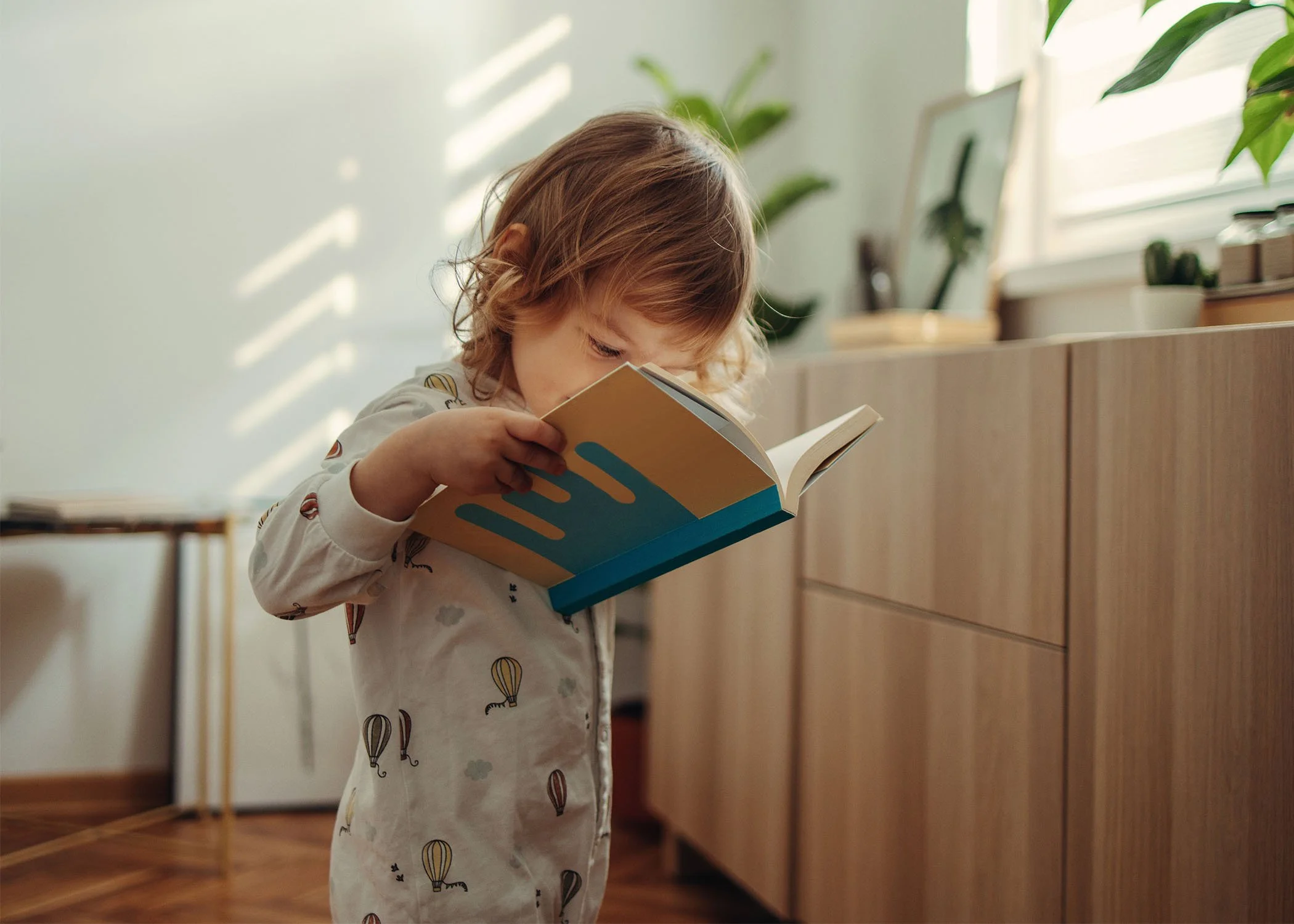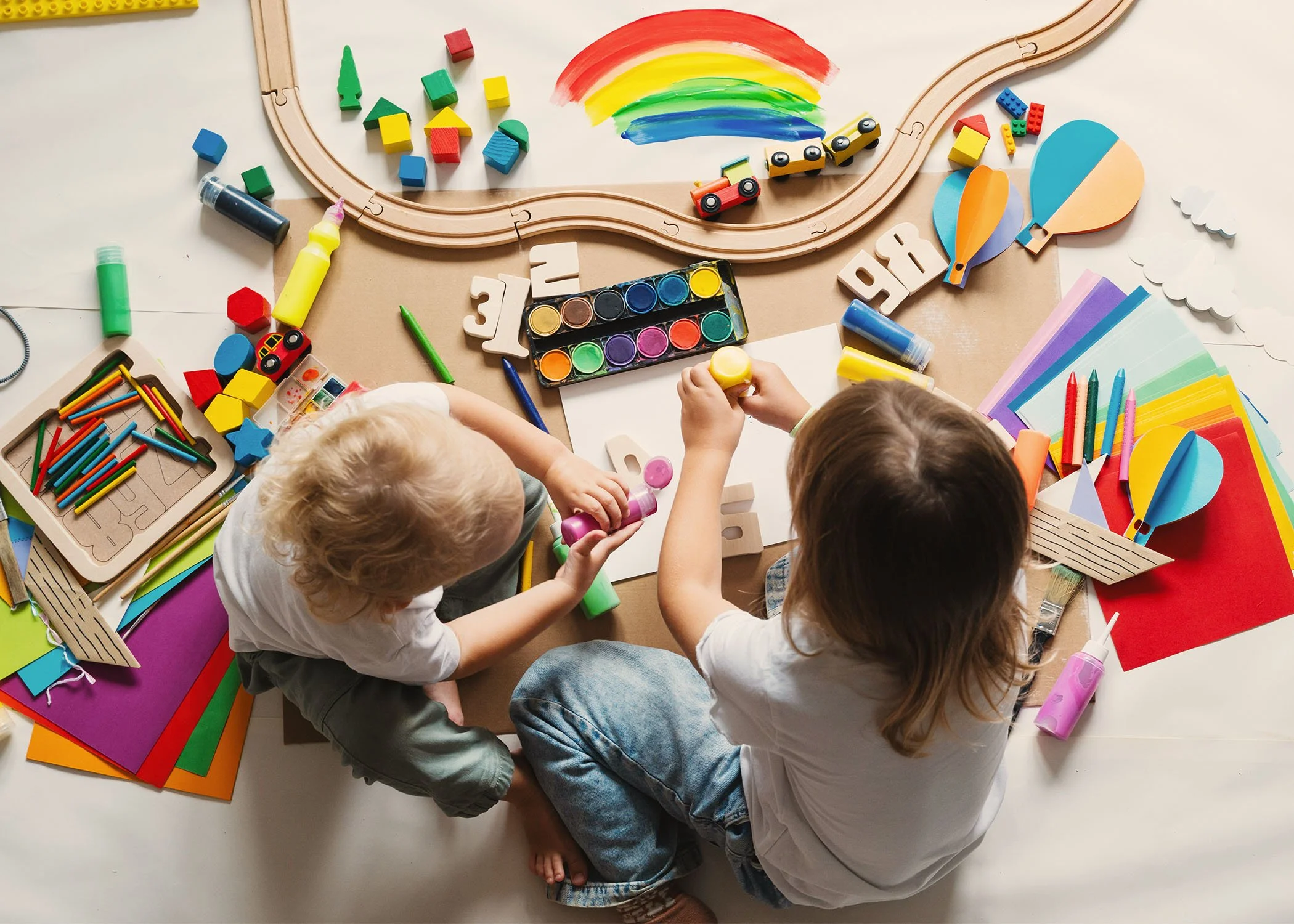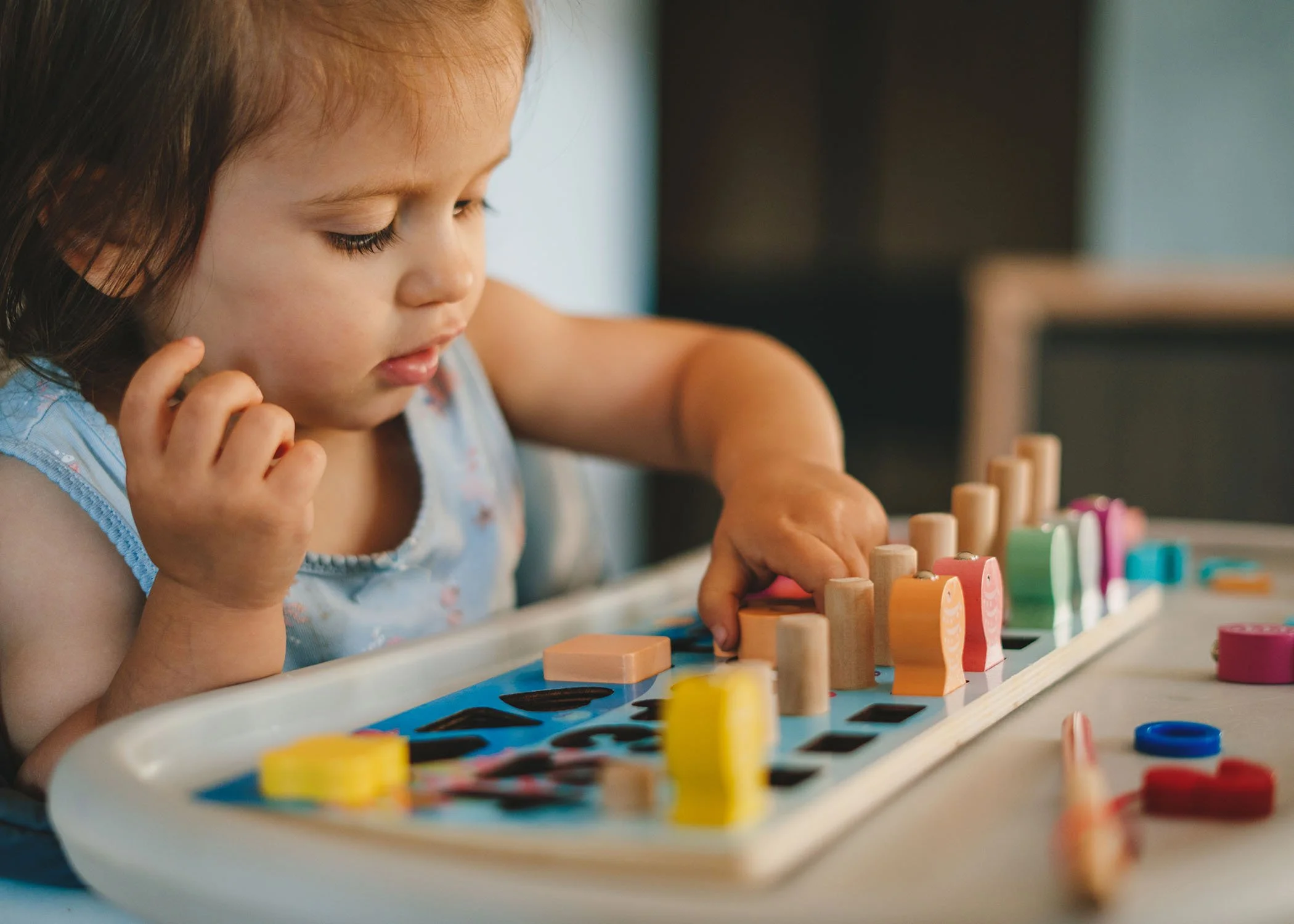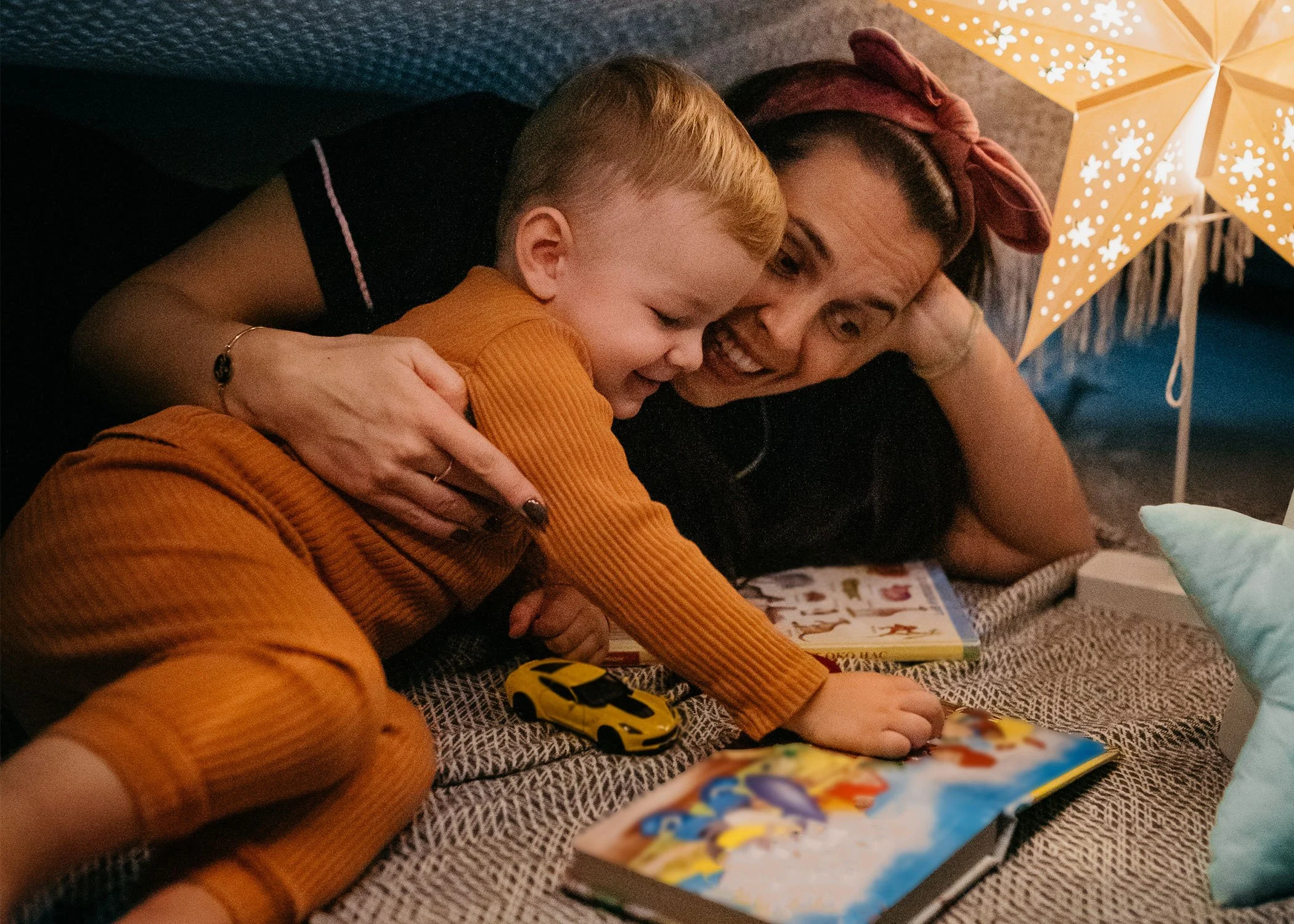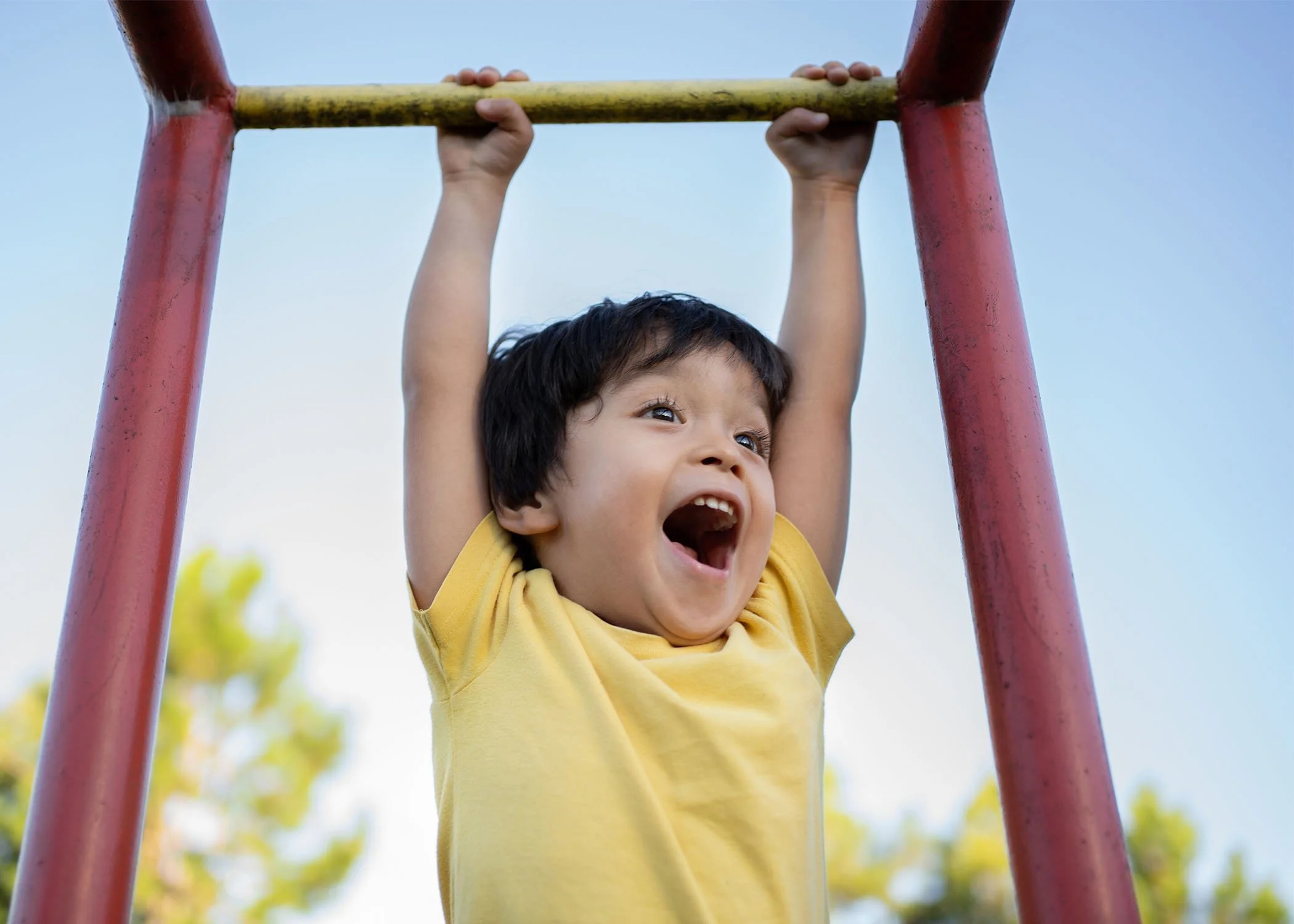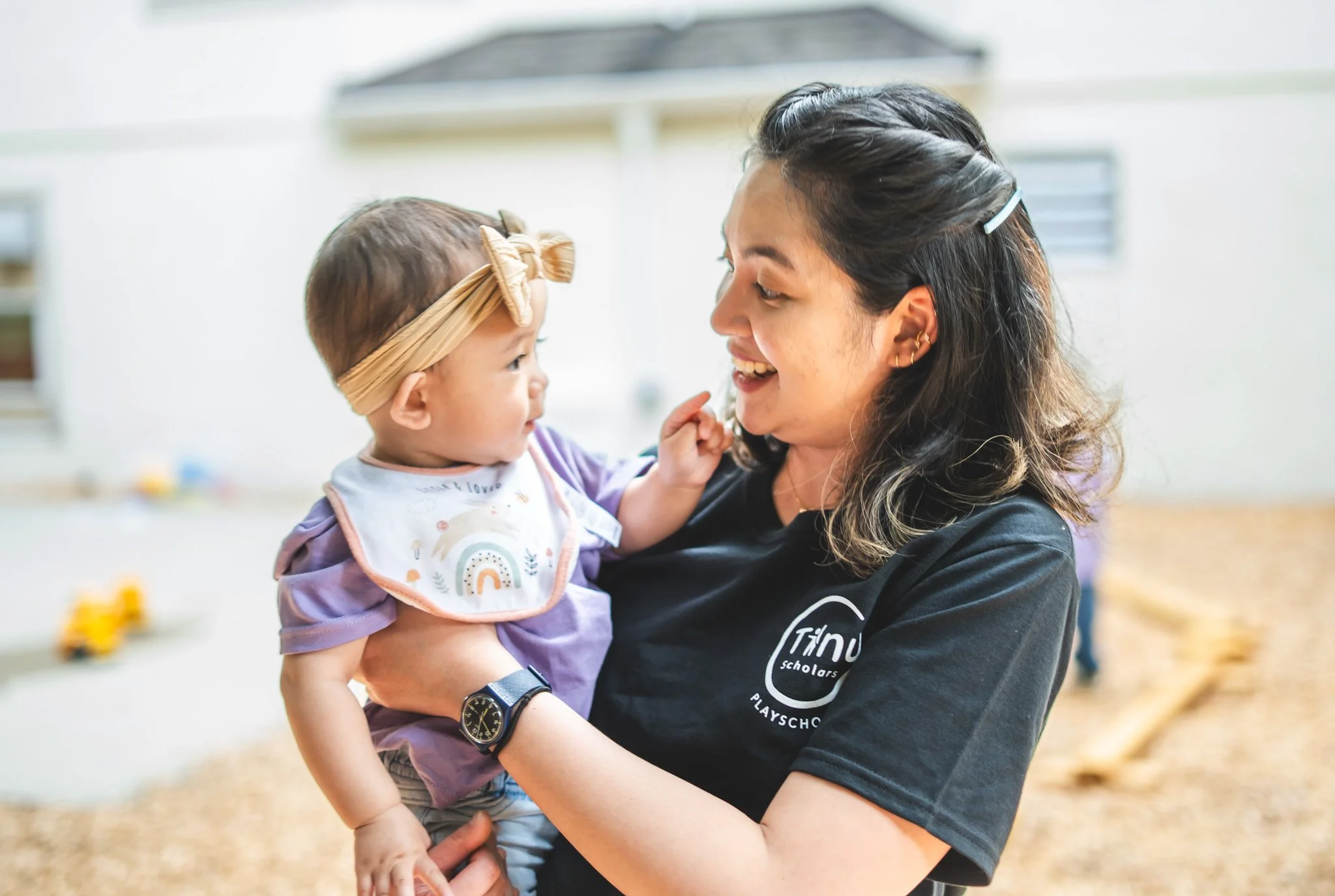The Science Behind Play and Brain Development
Play is not a break from learning—it’s the blueprint for how young brains grow.
In early childhood, the brain develops faster than at any other point in life. Every moment, every sound, every interaction, and every new experience lays the groundwork for how a child thinks, feels, and functions for years to come.
While flashcards and rigid instruction might look impressive, research shows that the most effective way to support healthy brain development isn’t drilling facts—it’s play.
At Tiny Scholars, play-based learning isn’t a trend. It’s a research-informed foundation rooted in neuroscience, psychology, and best practices in early childhood education. And it begins the moment your child walks through the door.
1.
90% of the Brain Develops Before
Age 5
By age five, a child’s brain is nearly fully formed—but its shape, strength, and structure depend entirely on early experiences.
Neuroscientists confirm that:
Neural connections (called synapses) are most active in the early years
The brain builds pathways based on repetition, emotion, and exploration
Loving, responsive environments wire the brain for resilience and adaptability
Play is one of the most powerful vehicles for this kind of healthy stimulation. It supports the integration of cognitive, emotional, and motor systems all at once—something worksheets simply can’t replicate.
“When children begin together, they belong together. It’s the foundation of lifelong social learning.”
2. Play Is the Brain’s Favourite Way to Learn
According to the Canadian Paediatric Society and organisations like the Harvard Centre on the Developing Child, open-ended, child-led play improves:
Memory and attention span
Emotional regulation
Problem-solving skills
Language development
Executive functioning (decision-making, planning, impulse control)
At Tiny Scholars, play is not “free time.” It’s intentionally designed to engage all areas of the brain through:
Sensory exploration (e.g., sand, water, natural materials)
Role play and dramatic storytelling
Open-ended building with blocks, loose parts, and nature items
Movement-rich activities indoors and out
Each activity is carefully chosen to support specific areas of growth—while allowing children the joy and agency to lead their own learning.
3. Repetition Builds Pathways—Play Builds Repetition
When a child repeats the same activity over and over (such as filling and dumping a bucket, building the same tower, or re-enacting a story), it may look aimless to adults—but it’s anything but.
Repetition in play:
Strengthens myelination, helping brain signals move faster
Builds mastery, self-confidence, and concentration
Supports long-term retention of skills and concepts
At Tiny Scholars, educators are trained to observe these repetitions—called schemas—and enhance them through new vocabulary, gentle scaffolding, and added materials.
This is where the science of brain growth meets the art of teaching.
4. Emotion + Learning = Memory That Sticks
Studies show that children remember experiences that are emotionally rich. Laughter, curiosity, connection, and even small frustrations (when well-supported) create emotional “hooks” that anchor learning in the brain.
That’s why Tiny Scholars educators:
Respond warmly to children’s emotional cues
Use play to process feelings, transitions, and conflict
Embed storytelling and imagination into the learning process
Encourage risk-taking in safe, supportive ways
This emotionally intelligent environment activates both the limbic system (emotions) and prefrontal cortex (thinking)—the perfect recipe for durable, meaningful learning.
5. Outdoor Play Supercharges the Brain
Nature isn’t just a backdrop—it’s a brain-building environment. Studies from the University of British Columbia and others show that outdoor play enhances:
Stress regulation and mood
Physical coordination and spatial awareness
Creativity and executive functioning
Immune system development
At Tiny Scholars, our outdoor areas aren’t a quick recess—they’re a core part of the curriculum. Children garden, climb, explore textures, watch bugs, and notice changes in weather and light.
This is learning that lives in the body, not just the brain.
6.Relationships Drive Brain Growth
Brain development doesn’t happen in isolation—it thrives in relationship.
Through our Heart-to-Heart programme, every child at Tiny Scholars is seen, heard, and understood. Secure, responsive relationships with educators:
Activate the brain’s social and emotional circuits
Teach trust, empathy, and collaboration
Lower cortisol (stress hormone) and improve learning outcomes
This isn’t an add-on. It’s the heart of everything we do.
🧠 Smart Isn’t About Early Academics
—It’s About Deep Foundations
A child who plays deeply today will problem-solve more creatively tomorrow.
A child who pretends, builds, and negotiates in play is preparing for math, reading, science—and life.
At Tiny Scholars, we don’t rush children through childhood. We honour the pace of development, and build brains through joy, curiosity, and connection.
🔍 Come See the Science in Action
📅 Book a Tour to visit a classroom designed for whole-brain development.
📞 Contact Tiny Scholars to speak with an educator about how our play-based philosophy is shaping confident, capable learners—one joyful moment at a time.
Because the best start in life doesn’t look like school—it looks like play.


